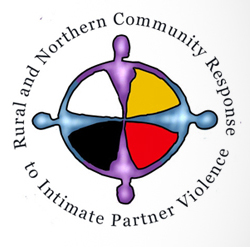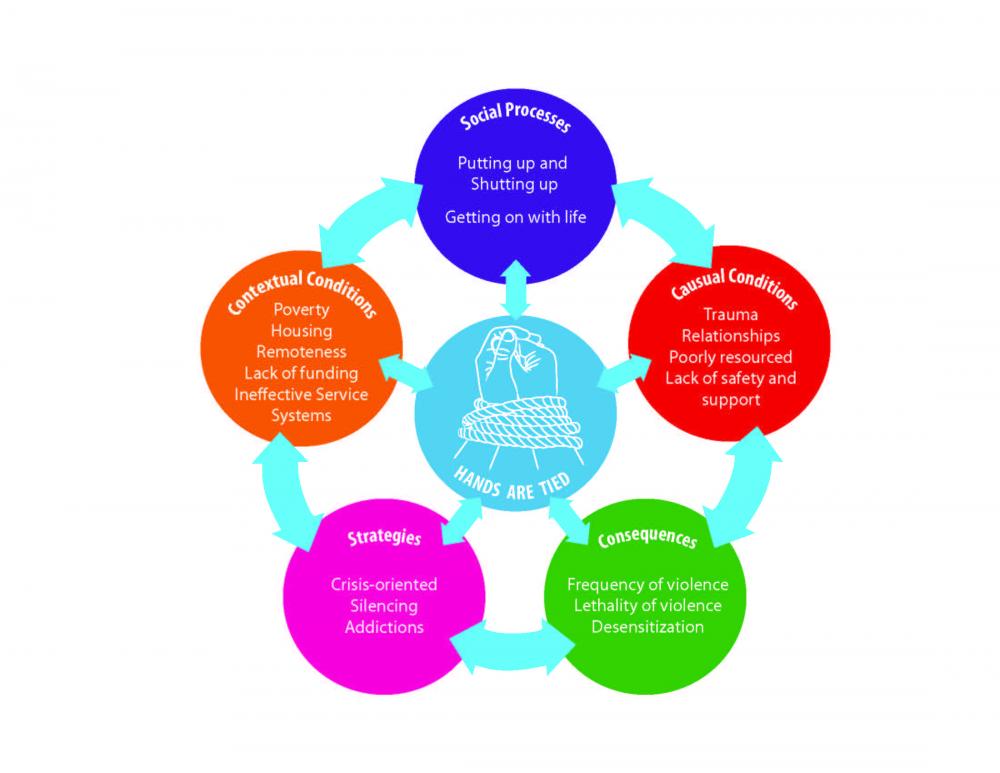Intimate partner violence is a serious social problem in the Prairie Provinces and Northwest Territories. These regions report the highest rates of shelter utilization in Canada and the highest rates of sexual assault and intimate partner homicide. Despite sustained research into intimate partner violence, little data is available about rural and northern communities' incidence of intimate partner violence. Numerous gaps have been identified, including the need for research conducted within a Canadian context, the unique experiences of specific populations of women, and the experience of women in rural and northern communities. As a result, resources that respond to this social problem are lacking and knowledge of how to improve community responses to intimate partner violence are poor. This research aims to answer:
- What are the unique needs of victims of IPV living in rural and northern areas of these regions?
- What are the gaps that exist in meeting these needs?
- How do we create non-violent communities in these regions?

Research Team:
Dr. Pertice Moffitt, Heather Fikowski, and community partner Lyda Fuller, YWCA, are co-investigators in a $1 million SSHRC research project: "Rural and Northern Response to Intimate Partner Violence (2011-2016)" with Dr. Mary Hampton (Luther College/University of Regina) and a collaborative team from Alberta, Saskatchewan and Manitoba. Eighteen academic researchers and 15 community partners comprise the research team. The project brings together researchers from universities in each of the three Prairie provinces and the NWT and other partners including governmental justice, social services, and shelters.

Methods:
The methods used to conduct this research project are extremely important. During this community-based research, researchers take their lead from partner communities. They address community-identified research questions regarding intimate partner violence and develop solutions that policy makers and community members themselves can implement to end intimate partner violence in northern and rural communities.
Training:
As part of this grant, northern students are being supported and trained as part of the research team.
Results:
This project is ongoing until 2016. For the most recent results from this project please click here.

Funding:
This research was supported by the Social Sciences and Humanities Research Council through the Community-University Research Alliance program.
Rural and Northern Community Response to Intimate Partner Violence (2011-2016) SSHRC-CURA funded
The project received a one year extension to February 2017 for KT activities. The NWT is developing a stakeholders report that will be released in September 2016. A model and action plan have been developed and both are identified in the report. During the remainder of 2016 and into 2017, visits to NWT communities (to discuss the research findings and actions) are planned along with dissemination nationally and internationally. We are working on publications with the larger team and locally with the NWT team. To learn more about the research, check the following website at the University of Regina:
http://www2.uregina.ca/ipv/index.html
Contacts:
For more information please contact us.
Additional Information and Resources:
Domestic Homicide Prevention Newsletter July 2016 Canadian Domestic Homicide Prevention Initiative Overview
